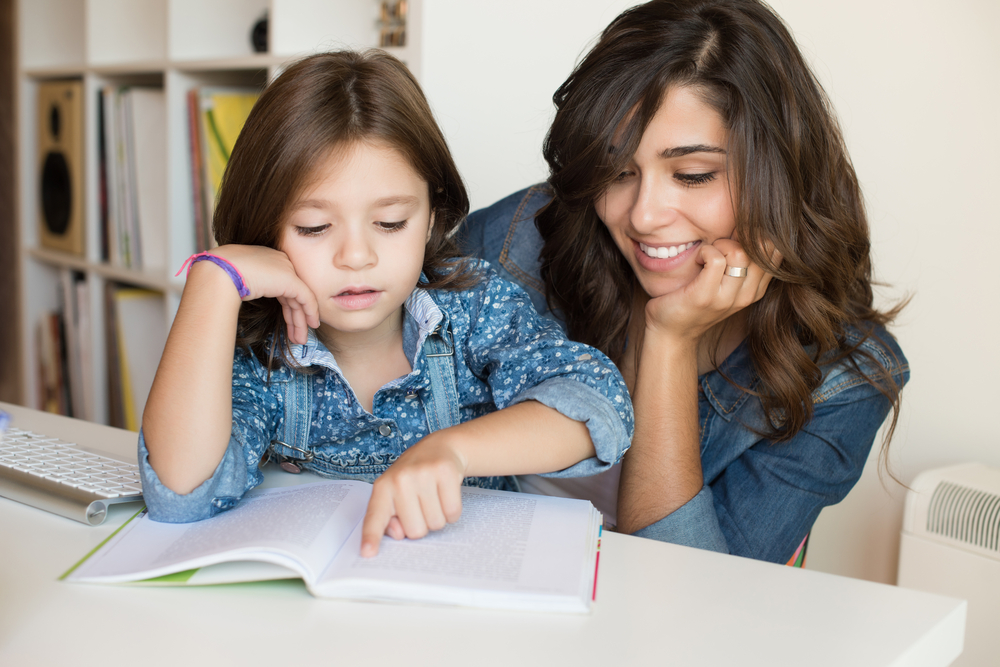Contents:
- Medical Video: Black families increasingly choose to homeschool kids
- What are the benefits of homeschooling for children?
- 1. Children are more free to develop their talents
- 2. Learning time is more flexible
- 3. Children are better at digesting information
- 4. Children get enough sleep
- 5. You can monitor child relationships
- So what are the disadvantages?
- So what homeschooling a good choice for your child?
Medical Video: Black families increasingly choose to homeschool kids
Many parents now look at homeschool learning methods for their children. By sending your child to your own home, you don't have to bother to shuttle and you don't have to worry about your baby's food. You can also select the instructor or tutor yourself that you feel is suitable for your child. However, is homeschooling right for your child than in ordinary school? Here are a number of things you need to consider.
What are the benefits of homeschooling for children?
1. Children are more free to develop their talents
Homeschooling is an independent learning method. With school at home, parents and childrencan jointly determine the topic, time, duration, and how to teach according to the child's interests, abilities, and learning styles. Although indeed, most subjects taught in the homeschool curriculum still refer to the national standard curriculum.
Reporting from the Parents page, author of the book The Element,Ken Robinson said that the ideal education key for children should not be generalized. Every child has different talents and interests and the ability to process information. With homeschooling, you are the one who best understands your child so that this method can be more optimal fordevelop the talents of each child according to their desires and abilities.
The development of maximum interest and talent makes children later able to be more flexible to adapt to the outside environment with any conditions.
2. Learning time is more flexible
One of the biggest advantages homeschooling is in terms of flexibility. You, the child, and the teacher can negotiate with each other to determine the best time to start learning and how long it takes in a day. You can also negotiate to determine the location (not always at home, you know!), Frequency, and schedule of subjects you want to study in one day.
You and your tutor can even change your child's learning schedule, if he starts feeling bored. For example, when learning about the solar system, rather than being bored reading books and memorizing planetary names, you can invite them to "comparative studies" to the Planetarium. Even for subjects such as Physical Education and Practice that require hands-on practice, you can move children's "classes" to the field or city parks and music studios.
3. Children are better at digesting information
A learning atmosphere that does not seem rigid or boring can help children to be more enthusiastic and understand the content of their lessons. He can also focus more on learning without the interference of others. If he finds difficulties in between learning, children will find it easier to ask questions and immediately get a solution without inhibiting the learning process of others.
Unlike formal schools, for example when children do not understand mathematics, the teacher will teach the topic until it is completely completed for all students in the class. Question sessions in the middle of teaching and learning activities (KBM) can hamper the learning time of other students in the class. By going to school at home, the tutor can focus only on one child.
4. Children get enough sleep
The duration of teaching and learning time in Indonesian schools is among the longest in the world. The average school child is required to enter school at 6:30 to 7 am and finish at 3:00 p.m. This does not include the length of time spent tutoring here and there.
Ironically, the average academic value of Indonesian children after nonstop learning for 8 hours is still lower than Singapore students, who only learn about 5 hours every day. The reason is, the routine of going to school that forces children to wake up at dawn and sleep late at night almost every day ruffles the quality of their sleep. Children who lack sleep are more likely to fall asleep in class during the lesson. Gradually this will affect the performance of children in school.
Apart from academic problems, sleep deprivation is also associated with the risk of high cholesterol and childhood obesity in the future. One study found that the short-term effects of sleep deprivation, such as colds, flu, and indigestion, more often occur when children sleep less than seven hours.
5. You can monitor child relationships
Teenagers who lack sleep are more likely to be careless, impulsive, hyperactive, and opposed. So, it is no longer a new phenomenon to see the academic performance of adolescents who are not getting enough sleep falls than other friends.
Lack of sleep will have a negative impact on children's behavior. One study found that every 10 minutes delaying night's sleep, there was an increased risk of 6 percent for those who consumed alcohol or marijuana. Lack of sleep also increases the risk of school children becoming dependent on anti-anxiety drugs and sleeping pills. The effects of the abuse of these drugs will in turn trigger children to become more anxious and have difficulty sleeping.
Another study published in the Journal of Youth and Adolescence in 2015 was reported fromHuffington Post, found that teens who slept only six hours each night were reported to be three times more likely to suffer from depression. Sleep deprivation also increases the risk of child suicide attempts by 58 percent.
Well, other benefits that can be obtained from homeschooling for children is you can monitor the association. That way children will avoid the effects of smoking and drug consumption and bullying that are vulnerable to affect children in their transition period. In addition, parents can spend a lot of time with children by accompanying them to study at home.
So what are the disadvantages?
Behind the benefits that can be obtained, you also need to know the losses that may arise from homeschooling for children.
The most important thing to consider is the limited scope of association and friendship of children.The reason is, homeschooling making children more focused on interacting with teachers and their parents, not on peers like formal schools. In fact, the presence of friends can train children to foster a sense of empathy and develop social skills.
To overcome social problems that may be faced by children homeschooling, You as a parent need to make your child feel connected to the world of school and his peer environment. This depends on how you are equalizing homeschooling according to the portion so that the child does not feel alienated in his association.
Besides that, children homeschooling do not have school facilities in general, such as laboratories, libraries, sports centers, or art studios. There are certain subjects in formal schools that require children to explore their abilities directly, such as researching in the laboratory, physical sports, extracurricular activities, and other motor skills. To invite your child "comparative study" yourself, you certainly need more mature preparation and need to spend on your personal pocket.
So what homeschooling a good choice for your child?
Election homeschooling for children can be influenced by various factors. For example, because children suffer from serious illnesses that make their activities limited, or other causes that make it difficult for children to reach formal schools.
However, the most frequent reason is because parents feel able to provide better education through homeschooling than other formal schools. In the end, the decision to send your child to home is in your hands as a parent who understands him the most, as well as the opinions of your own child.
If your child really wants to go to public school, then it's likely that this is the best for your child. The main key is how you as a parent are able to communicate your child's needs and abilities to the teacher, both at school and tutors homeschooling.
What needs to be considered, if children do experience problems during school, such as academic problems or children become victims of bullying, you cannot immediately choose homeschooling as a shortcut. Of course you have to find the right solution for your child's problem by discussing it with the teacher at school.












